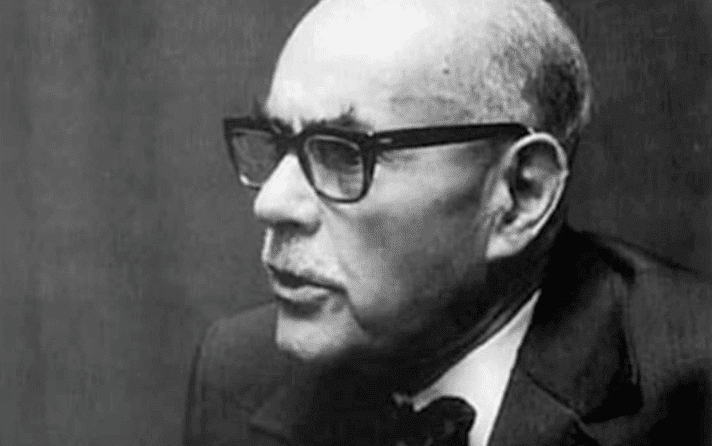Wilfred Bion was born in Mattura on 8 September 1897 and died at Oxford on 28 August 1979.
He graduated as a doctor, but in practice he was seduced by the ideas of psychoanalysis, his work leading to a new theory on how to think about humans.
Bion has distinguished himself for his work as a psychoanalyst with patients with psychotic disorders.
He initially based his studies on the theories of Melanie Klein and Sigmund Freud, later created his own theoretical field and even developed concepts previously established by Klein.
In addition, his work with soldiers affected by the evils of World War II was the basis of one of his main theoretical contributions, a contribution of great importance and which became a reference in the psychology of groups.
Read on and find out why Wilfred Bion is one of the most important figures in the history of psychoanalysis.
“The purest way to listen is to do it without memory and without desire. “Wilfred Bion?
Wilfred Bion was born and lived until the age of 8 in India, grew up into a wealthy family, whose main financial flows came from the colonization of these lands that, at the time, were under the rule of the British Empire. .
Later, his parents sent him to boarding school in England, where he distinguished himself by being a great sportsman, mainly in swimming and water polo. Bion remembers how much he missed his parents and India while at boarding school.
Bion became involved in both world wars. In fact, he volunteered in World War I and that’s why he was awarded a decoration for his services. During World War II, he served as a military psychiatrist at Nothfield Hospital.
During her work as a psychiatrist, she came into contact with Melanie Klein’s theories, as well as those of other prestigious psychoanalysts. He has also worked with Donald Winnicott and Herbert Rosenfeld, through his work at the Tavistock Clinic.
Bion’s work was so important that he became president of the British Psychoanalytic Association. His later years have been spent working in California and spreading his theories about the treatment of psychosis.
Wilfred Bion said that we have an innate tendency to know, it would be the spark that ignites the fire that encourages us to learn new things, both about ourselves and about others, and also about the world itself.
According to Wilfred Bion, thought is gradually becoming a thinking machine, thanks to the cluster of perceptions, sensations and experiences. This is the theory of content and the continent.
The baby experiences sensations and emotions that he cannot tolerate and cries; the mother or who does her job is in charge of collecting and developing them.
The mother then shares these elaborations with the baby in a way that he is able to manage and understand, so the baby internalizes these thoughts and forms his own system of thoughts.
Finally, it will be able to form its own impressions, make sense of the experiences it lives, this would be the engine of psychological development according to Bion.
From now on, primitive elements take root if the baby or the person responsible is unable to develop them, making sense of things.
In addition, the vacuum generated produces anxiety, and the anguish felt by the little one tends to manifest itself in different ways, that is how symptoms such as hallucinations, somatizations, etc. appear.
The role of the therapist may be that of the continent, because it deals with the anxieties that the patient brings, in this way, the psychological structure of the patient needs support in order to develop his rooted primitive subjects. would be the facilitator who would make it possible.
Wilfred Bion has written two relevant books, both for what they represent in his thinking and for the role they played in the evolution of psychoanalysis.
In this book he shows his original theory of thought, at first he speaks of the formation of thought in people with psychosis, for this Purpose Bion explores his own works, especially showing self-criticism, which saves the limits that an analyst can present.
To speak of Bion is to speak of an author who, with the originality and depth of his studies, has managed to give a new perspective to psychoanalysis.
Today, a growing number of analysts, psychologists and psychiatrists have their inheritance in mind, in this way, their contributions remain a benchmark in the current in which they developed.

